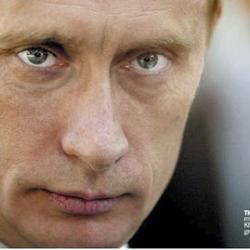In this case, however, the pope startlingly juxtaposed the words "totalitarian" and "democracy" and warned of "totalitarian democracy" as the new danger, even in America. A "totalitarian democracy" may seem a contradiction in terms. However, when its context in the "laws of nature and of nature's God" is removed, democracy loses its authority in higher law and becomes simply another vehicle for the expression of the primacy of the will. This is the basis of totalitarianism. What one wills, not what one reasons, is paramount. Force, not free will, is the means. Whether it is the force of the majority or of the minority matters not.
In his brilliant Crisis Magazine article, "Why the Pope Loves America" (February 1997), Dennis Teti pointed to the source of John Paul II's affection for the United States in the natural law grounding of its founding documents. The pope consistently spoke of "the paramount value of the natural law." That love for America was clearly still intact when he addressed President Bush during a 2001 meeting:
Your nation's founders . . . were guided by a profound sense of responsibility towards the common good to be pursued in respect for the God-given dignity and inalienable rights of all. America continues to measure herself by the nobility of her founding vision in building this society of liberty, equality, and justice under the law. In the century which has just ended, these same ideals inspired the American people to resist two totalitarian systems, based on an atheistic vision of man and society.
John Paul II urged President Bush to "strengthen your country in its commitment to the principles which inspired American democracy from the beginning." It was precisely that commitment that the pope saw America in danger of losing.
As Teti pointed out, a number of papal statements expressed the concern that, as Teti says, "Totalitarianism is implicit in democratic denials of objective truth." In Veritatis Splendor, the pope warned of "the risk of an alliance between democracy and ethical relativism, which would remove any sure moral reference point from political and social life, and on a deeper level make the acknowledgment of truth impossible."
If truth is impossible, so are the "self-evident truths" upon which free government depends. Then, one can understand everything in terms of power and its manipulation. The concern is not simply with evil but with its institutionalization. In 1993, the pope said that "the 'culture of death' has assumed a social and institutional form of legality to justify the most horrible crimes against humanity: genocide, 'final solutions,' 'ethnic cleansings,' and the massive 'taking of life of human beings even before they are born or before they reach the natural point of death.'"
This led to the pope's extraordinary rebuke of President Clinton for vetoing the partial-birth abortion ban:
This presidential decision . . . amounts to an incredibly brutal act of aggression against innocent human life and the inalienable human rights of the unborn. The fact that this presidential decision legalized this inhuman procedure, morally and ethically imperils the future of a society which condones it.
John Paul II continued to call things by their true names. As he had refused to comply with the old lie of slavery, he would not bend to the new lie of false freedom. He preserved the integrity of words because of his fidelity to the Word. People celebrate him for the victory over Communism but not for the deeper reasons behind that victory, because they do not like being told that they are abusing their freedom. However, he raised the hope that moral recovery is possible by calling for it. And, if it happens, it will be because his words perdure.
President Bush appreciated the larger role the pope played -- not simply as a champion of freedom, but at a deeper level -- and went to the heart of it in an off-the-cuff comment to the press as he was leaving Rome after the funeral. He said, "I would define Pope John Paul II as a clear thinker who was like a rock. And tides of moral relativism kind of washed around him, but he stood strong as a rock."
What, finally, enabled this man to do what he did? No conventional explanation suffices. There is an illustrative episode from his last months that hints at an answer. This was, recall, a period when the focus was on the pope's suffering and when, one would think, he would be consumed by it. One of his closest senior aides was looking for the pope in his apartments. Not finding him, he went into the private chapel. There he found the pope in his altar chair, with his arms around the tabernacle, singing in Polish. The aide fled. Later in the afternoon, he asked John Paul II what he had been doing in the chapel. The pope responded that he had been singing a song his mother used to sing to him when he was sad as a boy, and that he had been comforting our Lord.
The frightening intimacy that this man gained with Jesus Christ has changed the world, because Christ shone through him in a way that could be seen by billions of people. John Paul II had gone so completely into God that others could see God in him. This, his whole life seemed to say, is how a man lives who is not afraid, because "love always brings victory."
Robert R. Reilly is the music critic for InsideCatholic.com. This article originally appeared in the May 2005 issue of Crisis Magazine. Reprinted with permission from Inside Catholic.com




